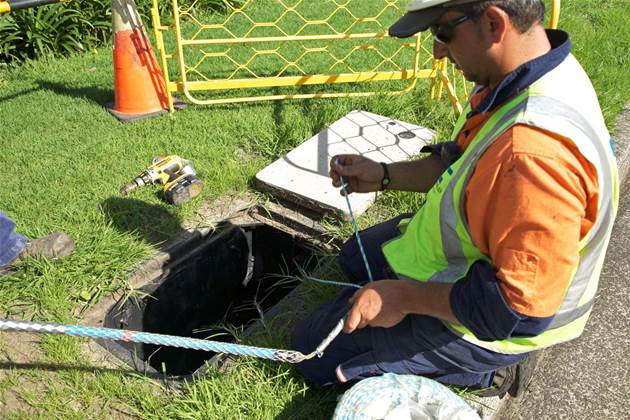Australia’s competition watchdog has proposed a new set of rules which would require NBN Co to store details of different NBN access services, including take-up and retail service provider market share, for 12 months to allow it to monitor how competition develops across the network.

The Australian Competition and Consumer Commission today opened consultation on its new "NBN Services in Operation Record Keeping Rules” (RKR) draft, which the Commission said would provide it with the “timely and reliable” information required to monitor competition on the NBN as well as whether NBN Co is effectively using and investing in the network.
“With the NBN set to become a key feature of the Australian telecommunications market going forward, it is crucial for the ACCC to be able to monitor how competition develops over this network, and that the use of and investment in the network occurs in an efficient manner.”
The record keeping rules would deliver the ACCC information on NBN services in operation plus network capacity and utilisation, among other details.
NBN Co would be required to store and provide data including the total number of access virtual circuit (AVC) services in operation for FTTP, wireless and interim satellite access services, to allow the ACCC to follow take-up trends and competition evolution across geographies.
It would also need to keep information on the total capacity of connectivity virtual circuit (CVC) in Mbps for each access seeker at each point of interconnect.
“The ACCC will be able to determine whether competition is developing in certain geographic segments at a quicker rate than others, monitor changes in consumer preferences for different data transfer rate ‘tiers’ and changes in the market shares of access seekers acquiring NBN Layer 2 services.”
The introduction of the new record keeping rules followed “strong concerns” raised by access seekers during consultation on NBN Co’s special access undertaking (SAU) around AVC and CVC pricing.
“Access seekers raised concerns that pricing decisions by NBN Co may strike an inappropriate balance between access and capacity charges, and distort market outcomes and/or lead to inefficient use of or investment in telecommunications infrastructure.”
ISP iiNet has previously spoken of the significant CVC cost, which former chief Michael Malone said at the time was roughly four times that of on-net ADSL.
NBN Co’s special access undertaking (SAU) - the document which sets out the minimum terms and conditions for services supplied over the NBN - already contains mechanisms to adjust AVC and CVC pricing should it lead to “inefficient outcomes”, but no market monitoring provisions have existed until now.
The ACCC said the NBN services in operation RKR would allow the watchdog to monitor the CVC pricing issue and identify whether there were impediments to RSPs accessing enough CVC for efficient use of the NBN.
NBN Co would need to store all the requested information for 12 months and provide it to the ACCC each quarter.
The ACCC already uses a set of record keeping rules for Telstra’s copper customer access network (the CAN RKR) to obtain details about the take-up of wholesale line rental, ADSL, ULLS and LSS services.
The watchdog said it has no similar source of information about the take-up of NBN access services, which is ‘creating a gap’ in its understanding of the state of competition on the NBN.
While both the existing CAN RKR and the new NBN RKR would overlap for a period of time, the watchdog said the new RKR would likely replace the CAN RKR once migration to the NBN is complete.
The RKR would take effect for an initial three years from October to 30 September 2017. The ACCC is taking submission on the draft rules until August 15.



_(36).jpg&h=140&w=231&c=1&s=0)
_(23).jpg&h=140&w=231&c=1&s=0)






 iTnews Executive Retreat - Security Leaders Edition
iTnews Executive Retreat - Security Leaders Edition
 iTnews Cloud Covered Breakfast Summit
iTnews Cloud Covered Breakfast Summit
 The 2026 iAwards
The 2026 iAwards











_(1).jpg&h=140&w=231&c=1&s=0)



